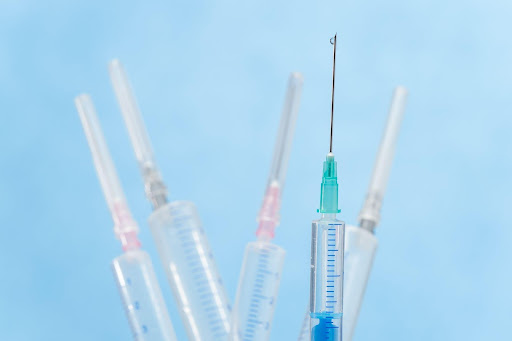Why is Canada’s Needle Exchange Program Important
Why is Canada’s Needle Exchange Program Important
Injection drug misuse has been an ongoing crisis in Canada for decades. To mitigate some of the risks and provide users with safer alternatives, Needle Exchange Programs (NEPs) have been implemented across the country.
NEPs, which are a harm reduction measure, are confidential and free. These programs provide high-risk users with sterile supplies, which helps protect them and prevent the spread of diseases. The used needles are then treated as bio-medical waste and disposed of safely.

What Are the Risks of Injection Drug Use (IDU)?
Injection enables a drug to enter the bloodstream quickly. Both legal and illegal drugs can be injected using a hypodermic needle and syringe. In Canada, some of the most frequently misused injected drugs are heroin, anabolic steroids, amphetamines and cocaine.
When non-sterile needles or contaminated injection equipment like filters, spoons or containers are shared, users are at high risk for contracting serious blood-borne viral infections like hepatitis C and HIV and bacterial infections like cellulitis and endocarditis.
Along with health complications, IDU can cause social isolation and relationship difficulties with friends and family. Users are also at increased risk for employment problems and criminal activity.
How Canada’s Needle Exchange Program Came About
After the first NEP was developed in Amsterdam in 1984, several unofficial needle exchange programs started in Canada during the late 1980s. Now, there are over 30 programs situated throughout the country.
While ceasing drug misuse is often the ultimate goal of NEPs, these programs recognize that some users may not be ready or willing to stop injecting. This is where harm reduction comes into play. By providing sterile needles and injection equipment and disposing of used supplies, NEPs greatly reduce the potential for health-related concerns, such as the spread of blood-borne illness.
How to Get Access to NEP and Harm Reduction Services in Canada
There are many locations across Canada where you can access NEP and harm reduction services, including over 60 agencies in Toronto. At Canadian Addiction Treatment Centres (CATC), we also offer Harm Reduction Services at many of our locations throughout Toronto and beyond, providing convenient sites where users can obtain supplies such as:
- Tourniquets
- Sterile water
- Alcohol swabs
- Cookers
- Vitamin C
- Long- and short-tipped needles
- Site bins
Naloxone kits are available at all of our locations as well.
Many NEP sites will also safely dispose of used supplies or tell you where you can find a nearby site drop-off.
How Needle Exchange Programs Have Helped in Toronto And Beyond
The overall effects of needle exchange programs have been largely positive and beneficial. The prevalence of diseases like Hepatitis C and HIV decreases with sterile supplies and safe injection sites. These programs also help to decrease the high cost of treating these infections. Through NEPs, overdose-related mortality and morbidity are also reduced, helping save countless lives.
Learn About Our Evidence-Based Treatment Options at CATC
At Canadian Addiction Treatment Centres, we are dedicated to providing evidence-based addiction treatment and a comprehensive care model to those struggling with injection drug use. By combining medical, pharmacy and support services, we’ll provide you with personalized, holistic care.
Have any questions about our treatment options or ready to seek help? Fill out our contact form and we’ll be in touch with you.